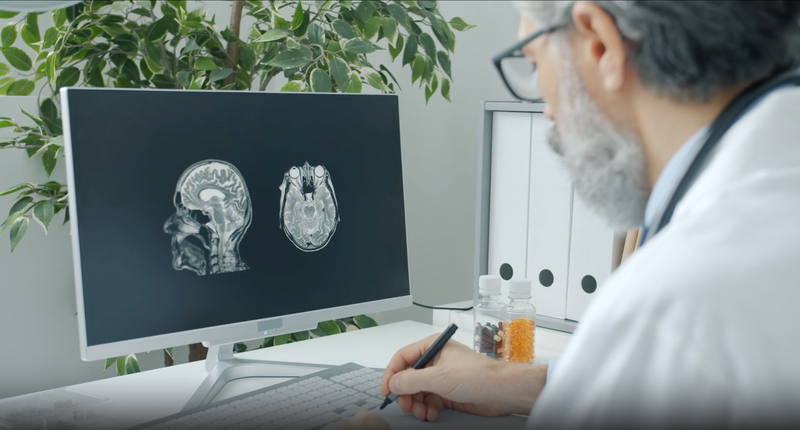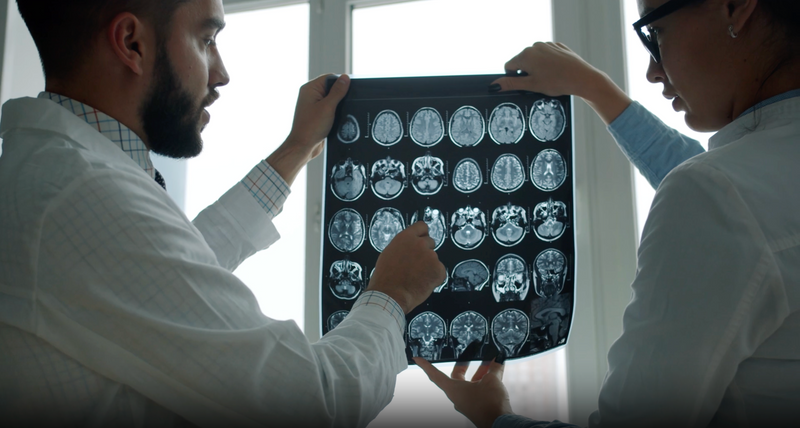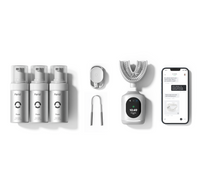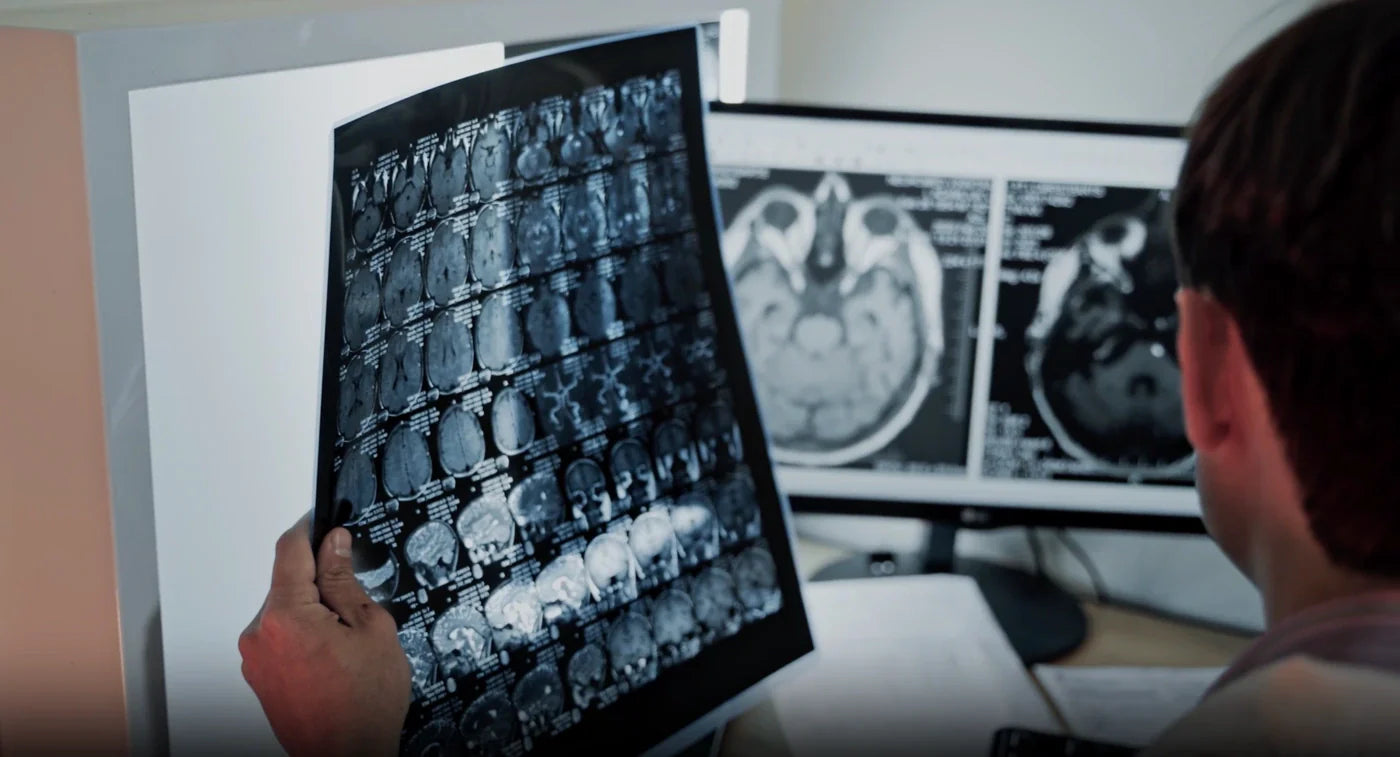
Parkinson's Disease and Dental Problems
Essential Takeaways
- Research confirms Parkinson's patients face substantially higher risks of severe oral health problems, but evidence-based approaches and innovative technology can help bridge the gap between physical limitations and optimal care.
Parkinson's disease creates a perfect storm for oral health complications. Parkinson's disease is the fastest growing and second most common progressive neurodegenerative condition, yet the dental challenges it creates remain largely overlooked until it's too late.
The Reality of Parkinson's and Oral Health
The clinical evidence is overwhelming. Systematic reviews consistently show PD patients have significantly higher prevalence of dental biofilm, bleeding/gingivitis, pocket depth (≥4 mm), tooth mobility, caries, and number of decayed missing filled teeth/surfaces compared to healthy controls. Even more concerning, nearly half of all people with PD have difficulty with their daily oral hygiene regimen due to physical effects like rigidity and tremor.
"We advise regular appointments with oral health care professionals, with an important focus on prevention." - Arch Oral Biology 2023
Why Parkinson's Wreaks Havoc on Your Mouth
There are three critical factors that make PD patients particularly vulnerable:
1. Motor Symptoms Create Physical Barriers
The physical effects of Parkinson's, such as rigidity and tremor, make it difficult and dangerous for dentists using drills and other sharp instruments to complete procedures. Clinical studies show approximately 45-50% of PD patients report substantial difficulty maintaining daily oral hygiene due to compromised motor skills.
(Case Reports in Dentistry 2014)
2. Medication Side Effects
The prevalence of dry mouth among Parkinson's patients ranges from 49% to 77%, while drooling occurs in 5–80% of cases. This creates a paradox insufficient saliva to protect teeth from decay, yet excessive drooling that disrupts normal oral function and social comfort.
(NPJ Parkinsons Disease 2025)
3. Cognitive Changes
Cognitive impairment diminishes the ability to maintain proper oral hygiene and reduces the likelihood of seeking dental care. Research shows patients may forget oral care routines or fail to recognize developing problems until they become severe.
(NPJ Parkinsons Disease 2025)
The Life-Threatening Consequences
This isn't just about dental discomfort. Poor dental hygiene can affect nutrition and increase risk for stroke, cognitive impairment and weight loss. Even more critically, poorly chewed food can increase the risk of choking and aspiration, which can contribute to life-threatening pneumonia.
Why Traditional Solutions Fall Short
Conventional recommendations tell PD patients to use toothbrushes with large-handled grips, place handles inside bike handlebar grips or tennis balls, or switch to standard electric toothbrushes. While these modifications help some patients, research indicates they don't eliminate the fundamental challenge: the sustained motor control and coordination required for thorough, two-minute brushing sessions.
"It is essential for multidisciplinary care teams to routinely assess and manage the oral health of individuals with Parkinson’s disease to help maintain nutrition, prevent infections, and support general well-being." - International Journal of Nutrition, Pharmacology, Neurological Diseases 2017
Clinical evidence shows that even with these aids, many PD patients still struggle to achieve adequate oral hygiene due to fatigue, tremor, and the progressive nature of their condition.

The Innovation Solution
20-Second Complete Clean
While traditional brushing requires 2+ minutes of sustained motor control, the Feno Smartbrush delivers comprehensive cleaning in just 20 seconds. Our 18,000 precision bristles work simultaneously across all tooth surfaces, eliminating the need for complex brushing patterns or prolonged hand movements.
TrueFit Personalization
Our TrueFit mouthpiece system adapts to individual mouth structure, ensuring optimal coverage regardless of motor control limitations. Six different sizes mean patients can get thorough results without technique dependency.
Built-in Health Monitoring
The integrated oral scanner provides objective feedback about oral health status crucial for PD patients who may not recognize symptoms due to cognitive changes. Our system can alert patients and caregivers to potential issues before they become serious problems.
Caregiver-Friendly Design
The magnetic wireless charging and simple operation make it easy for family members or professional caregivers to assist with oral care when independence becomes challenging.
Preserving Your Independence
As Parkinson's disease progresses, patients may become dependent on others for routine oral care, but they still wish to care for themselves as independently as possible. Technology that reduces the complexity and duration of oral care while maintaining effectiveness can help preserve that independence longer.
The Bottom Line
The research is clear: Parkinson's disease substantially increases oral health risks through multiple pathways. Healthcare providers often fail to prioritize oral health due to factors such as lack of knowledge, time constraints, and unclear responsibilities.
I believe we need solutions that work within the reality of PD symptoms, not against them. Don't let Parkinson's compromise your oral health. The connection between your mouth and overall health is too critical to ignore, and approaches like innovative technology exist to help overcome the barriers PD creates.
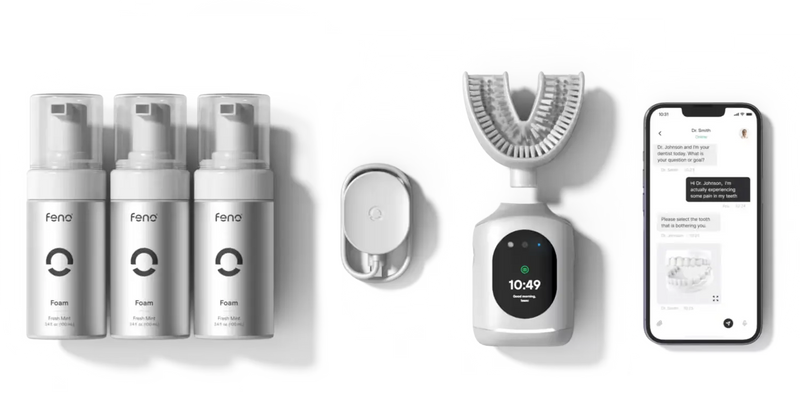
Feno Founders Edition Bundle
Advanced Oral Health in 20 Seconds with the Feno Smartbrush™
Get Yours Now!


